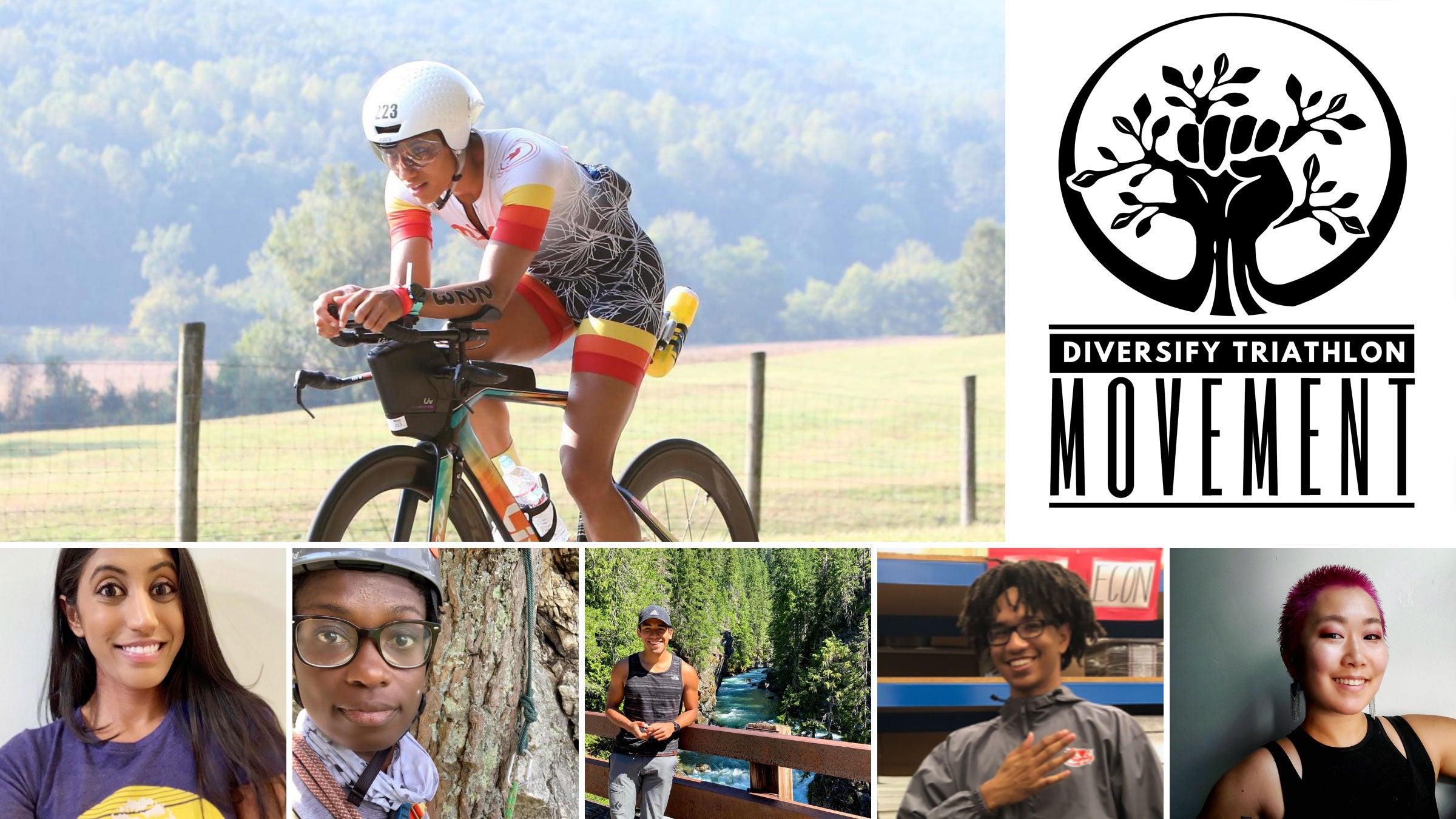The Diversify Triathlon Movement Started As An Instagram Post

“I’ve got a crazy idea,” Vanessa Foerster posted on Instagram. “But if it works, it could change the landscape of triathlon.”
Triathlon is overwhelmingly white. Black athletes make up less than 1 percent of participants in the U.S. and Canada. “Taking that to a granular level,” Foerster said, “that means for every 2,500-participant race, only 25 people are Black.” With more than 13 years of participation in Ironman and 70.3 racing, Foerster, who is biracial, feels that number is “spot on.”
Because of the Black Lives Matter movement, 2020 has been filled with a lot of talk about diversity and inclusion. Though these conversations are important, Foerster said words need to be backed up with deeds: “I wanted to find a simple way to bring more diversity and inclusion into the triathlon space; to stop talking, stop blaming and start taking action.”
Foerster looked at the barriers stopping Black, Indigenous, and people of color (BIPOC) athletes from getting into the sport and created a plan to address each one of those. Knowledge and support are the primary barriers for entry into triathlon, so Foerster recruited triathlon coaches who would donate three months of free training for new BIPOC athletes. After 25 coaches signed on, Foerster put out an open call for new triathletes to join DTM. They had to be active, new to triathlon, and interested in getting started in the sport. Her original goal was to recruit 30 BIPOC athletes in 20 days. What actually happened: 30 submissions in 36 hours after the post blew up on social media. Foerster increased the capacity to 50 athletes, and filled those spots, too.
“The response was incredible,” Foerster said. “I have never been on the receiving end of the power of social media, but wow, to say I was surprised is a drastic understatement! I was so incredibly grateful for every single person who took the time to share. I tried my best to track all of the shares via Instagram and Facebook, and thanked them all individually.”
Today, the Diversify Triathlon Movement is going strong, with the initial class of 50 new BIPOC athletes and 25 coaches active in the program. Additionally, several companies have stepped up to support the athletes in their quest to become triathletes, addressing another major barrier to entry: cost. “From hydration and nutrition to recovery and even bikes, the support for the athletes has been amazing,” Foerster said.
In mid-August, DTM will launch a fundraiser in collaboration with Fund Her Tri, a charity organization which pays for the race registrations of first-time female triathletes. Funds raised during the month-long fundraiser will support all DTM athletes, regardless of gender. DTM is also partnering with Smashfest Queen for a custom race kit, which will be donated to DTM participants. The kit will also be available for sale to the public, with the proceeds going to the support of DTM.
Though the focus right now is on supporting the current batch of athletes as effectively as possible, Foerster plans to begin another round of recruitment in late 2020 or early 2021. It might only be 50 athletes right now, but it was only an Instagram post before it took off. One step at a time.
“This will not be a one and done because that’s not in line with what it means to be a movement,” she said, though she’s still trying to figure out what’s the most effective and useful way to really help new BIPOC athletes find and grow in the sport.
DTM is still accepting applications from coaches and sponsors who wish to donate their time, services, or products to Diversify Triathlon Movement. And if the first round is any indication, the Diversify Triathlon Movement will be the change Foerster wishes to see in the sport:
“Hands down, the most rewarding part of launching this movement has been the response from the DTM athletes,” Foerster said. “At least every other day, I get a comment from one of them thanking me for making this available to them. They share that they probably would not have ever felt like they had a place in triathlon without this movement. Gives me goosebumps every time!”